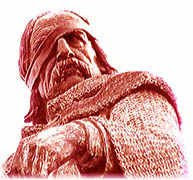I don't really have a problem with immigration - legal or otherwise - it's one world. It doesn't matter where someone has come from or how they have got here - it's what they do here that matters.
There are plenty of asshats in the UK that have had family here for generations. Sure there are bad seeds on every boat but I have respect for those who have given up their homes, their family and their lives to try and make a new life elsewhere. That's quite a price to pay - immigration isn't cheap.
The real issue with immigration is how it is managed and how we interact with the new arrivals. Many agencies are not sufficiently circumspect about their abilities or qualifications for particular roles. That gains cheap headlines and undermines better work.
One important effect of immigration is that it keeps wages low and they do the jobs that the "indigenous" population don't want to do, and are often grateful for the work.
If you actually study urban geography over the years you can see where the successive waves of population stablish themselves, and then gradually move into more affluent areas as time goes on.
I did this for a research thesis on the inner city areas of Glasgow, in particular at the Irish immigrant population of the late nineteenth century. Their story at the time was not dissimilar to New York. They came over en masse, established in certain areas, had conflict with the local population but eventually became part of the fabric of the city and its culture. That's how my great-grand father did it anyway.
Monday, 8 December 2008
Thursday, 4 December 2008
Modern classes?
Marx defined the classes in terms of their relationship to the mode of production. The haute bourgeoisie own and control it, the petit bourgeoisie we can identify with the middle classes - they may own a small business or assist on the running of a larger one. The proletariat are those whose worth is seen as their labour in exchange for wages. The very bottom rung are the lumpenproletariat, those who have nothing and offer nothing to society - beggars, thieves and the like.
I don't think these classes themselves have changed, rather the environments have shifted and indeed the modes of production have become more diverse, which can make them more difficult to spot. Really the petit bourgeoise has expanded, and increased perceived mobility within that group seems to create new classes but their relationship to the mode of production does not change.
In the United Kingdom, finance has become the primary mode of production. The new bourgoisie have been the bankers and financiers. The proletariat their "customers".
This is an intrinsically short term model which seeks to extract capital for the benefit of the bourgoisie as close to the point of investment as possible.
The financial proletariat get no benefit from this model - in fact the poorer you are, the more you are exploited through penal interest rates, and riskier personal financial models.
I don't think these classes themselves have changed, rather the environments have shifted and indeed the modes of production have become more diverse, which can make them more difficult to spot. Really the petit bourgeoise has expanded, and increased perceived mobility within that group seems to create new classes but their relationship to the mode of production does not change.
In the United Kingdom, finance has become the primary mode of production. The new bourgoisie have been the bankers and financiers. The proletariat their "customers".
This is an intrinsically short term model which seeks to extract capital for the benefit of the bourgoisie as close to the point of investment as possible.
The financial proletariat get no benefit from this model - in fact the poorer you are, the more you are exploited through penal interest rates, and riskier personal financial models.
Wednesday, 3 December 2008
Homeless
I hate to sound harsh but the reason most long term homeless people are on the streets is not the lack of available accomodation or poverty, it's because they can't function in what we who have shelter recognise as a home, and cannot form sufficent relationships to provide a safety net. That may be for a variety of reasons - mental illness, drug addiction. The latter is probably the biggest cause here and any money given generally goes on drugs. It doesnt take much begging to get the food you need for the day.
Subscribe to:
Comments (Atom)
